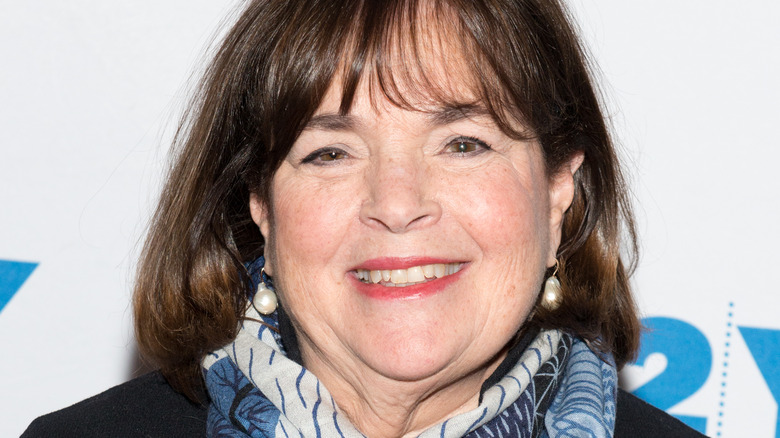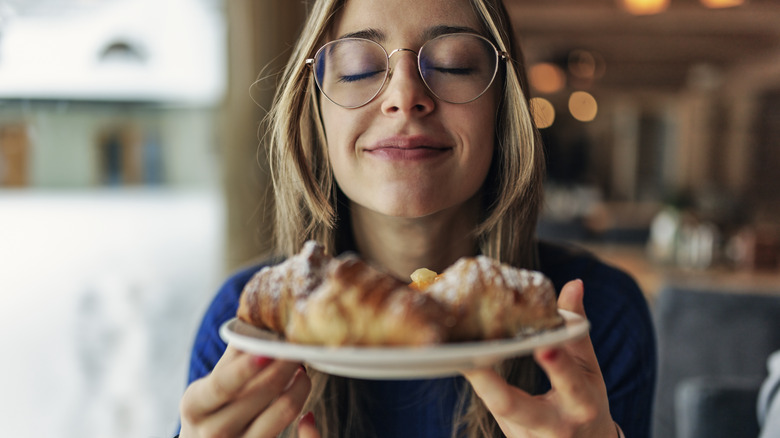Why Ina Garten Recommends Tasting Food With Your Eyes Closed
In the Disney Pixar masterpiece "Ratatouille" (2007), the protagonist Remy closes his eyes and takes a bite of cheese, savoring each chew. Then, with his eyes remaining closed, he delights in a bite of a fresh strawberry, remarking, "Amazing. Each flavor was totally unique." Later, Remy tries to bring the experience to his brother Emile, instructing him to close his eyes, take a bite of food, chew it slowly, and think about nothing but the flavors in his mouth.
In the same vein, this is Ina Garten's advice to home cooks, both experienced and green. By her estimation, the secret to crafting or experiencing a great dish might be to simply close your eyes. In her sixth cookbook, "Barefoot Contessa Back to Basics," Garten writes, "There are so many ways to unlock the flavor of food and it's the thing I'm always exploring when I cook. Close your eyes the next time you eat a piece of chocolate cake; did it really taste like chocolate or did the fudgey-looking icing just trick you into thinking it would taste like chocolate?"
Tasting food is a multi-sensory experience. Beyond the intricacies of the taste buds themselves, the olfactory system takes in the aroma, and the eyes observe the visual appearance of a dish. Yet, by eliminating the sight sense, the brain can focus more intensely on registering taste, thereby heightening the palate. It may sound like simplistic advice, but there's a slew of scientific research in support of the idea.
Seeing is believing ... and that's the problem
Eating with your eyes closed can actually make meals more intense on an interior level. Experiencing certain flavors evokes feelings, which we are more in tune to notice with our eyes shut. Maybe the taste of mashed potatoes with gravy reminds you of fond holiday memories, time with family, or feeling safe and worry-free as a child. These are all stimuli you could be missing out on if you're chowing down with eyes open (especially in front of the television).
On a larger scale, a 2016 study published in Elsevier examined the long-term implications of viewing aesthetically pleasing food images on social media and found that it might actually alter the way people taste food. As the study noted, "There is a danger that our growing exposure to beautifully presented images of food [has] detrimental consequences." Evidence from cognitive neuroscience showed that regularly looking at "food porn" pics can affect "neural activity, physiological and psychological responses, and visual attention, especially in the 'hungry' brain."
Long story short, leave the tasting to the taste buds and in turn elevate your eating experience. As the Barefoot Contessa urges, "When you're cooking, stop at the end and taste the dish — really taste it. Does it have depth of flavor? Can you taste the lemon in the lemon capellini with your eyes closed? Does the chocolate flavor hit you just once and fade away or is it complex enough to linger on your tongue?"

